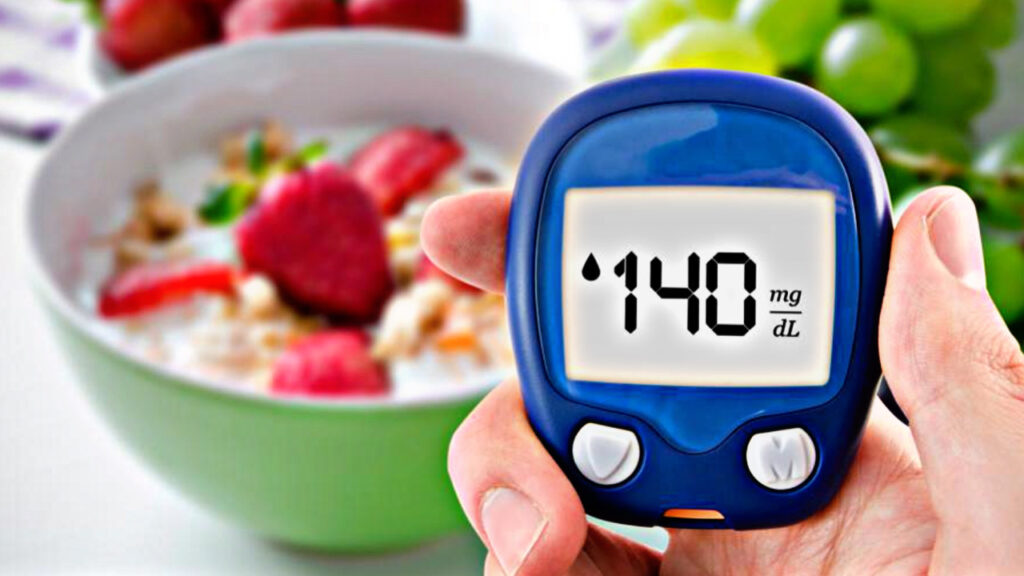Health
Maintaining healthy blood sugar levels is crucial for overall health, especially for individuals at risk of or living with diabetes. One of the most effective ways to manage blood sugar is through a balanced diet. Certain foods can help stabilize blood sugar levels, while others can cause spikes and fluctuations. If you’re looking to control your sugar levels naturally, incorporating these foods into your daily diet can be highly beneficial.

1. Leafy Green Vegetables
Leafy greens like spinach, kale, and swiss chard are rich in vitamins, minerals, and antioxidants. These vegetables are also low in carbohydrates, which helps prevent blood sugar spikes. High in fiber, they help slow down the absorption of sugar into the bloodstream, thus contributing to better blood sugar control.
2. Whole Grains
Whole grains such as oats, quinoa, brown rice, and barley are excellent choices for managing blood sugar levels. Unlike refined grains, whole grains retain their fiber content, which aids in regulating the release of glucose into the bloodstream. Consuming whole grains instead of processed grains helps improve insulin sensitivity and keeps blood sugar levels stable.
3. Berries
Berries, including strawberries, blueberries, raspberries, and blackberries, are packed with antioxidants and fiber. They have a low glycemic index (GI), meaning they cause a slower rise in blood sugar compared to other fruits. The fiber content in berries helps improve digestion and stabilize sugar levels, making them an excellent snack choice for those managing diabetes.

4. Nuts and Seeds
Nuts and seeds, such as almonds, walnuts, chia seeds, and flaxseeds, are rich in healthy fats, fiber, and protein, which can help regulate blood sugar. They have a low glycemic index and can keep you feeling full longer, reducing the chances of overeating and blood sugar spikes. Incorporating a handful of nuts or seeds into your daily diet can support long-term blood sugar management.
5. Cinnamon
Cinnamon is a popular spice known for its ability to improve insulin sensitivity and lower blood sugar levels. It contains compounds that mimic insulin and help the body utilize glucose more efficiently. Adding cinnamon to your meals, smoothies, or even your coffee can have a positive effect on your blood sugar levels.
6. Beans and Legumes
Beans and legumes, including lentils, chickpeas, black beans, and kidney beans, are excellent sources of protein and fiber. These foods have a low glycemic index and are slowly digested, preventing rapid increases in blood sugar. Their high fiber content helps improve insulin sensitivity and reduces the risk of developing type 2 diabetes.
7. Apple Cider Vinegar
Apple cider vinegar has gained popularity for its potential to regulate blood sugar. Studies suggest that consuming small amounts of apple cider vinegar before meals may improve insulin sensitivity and reduce blood sugar spikes after meals. You can dilute a tablespoon of apple cider vinegar in water and drink it before meals to reap its benefits.

8. Avocados
Avocados are rich in heart-healthy monounsaturated fats and fiber. The high fiber content of avocados helps slow the absorption of sugar and improves insulin sensitivity. Additionally, avocados are low in carbohydrates, making them an excellent food choice for maintaining stable blood sugar levels.
9. Sweet Potatoes
Sweet potatoes are a great source of complex carbohydrates, fiber, and vitamins. Compared to regular potatoes, sweet potatoes have a lower glycemic index, meaning they cause a slower and more steady increase in blood sugar levels. They are rich in beta-carotene and other antioxidants that help protect against oxidative stress, which is often associated with poor blood sugar control.
10. Garlic
Garlic is not only known for its flavor but also for its potential to lower blood sugar levels. Research suggests that garlic can improve insulin sensitivity and help reduce blood sugar levels in people with diabetes. Incorporating fresh garlic into your meals can add both taste and health benefits to your diet.
By including these foods in your diet, you can help stabilize your blood sugar levels and improve overall health. It’s also important to remember that maintaining a balanced diet, exercising regularly, and managing stress are key factors in blood sugar control. Always consult with a healthcare professional before making significant dietary changes, especially if you have a medical condition like diabetes.





